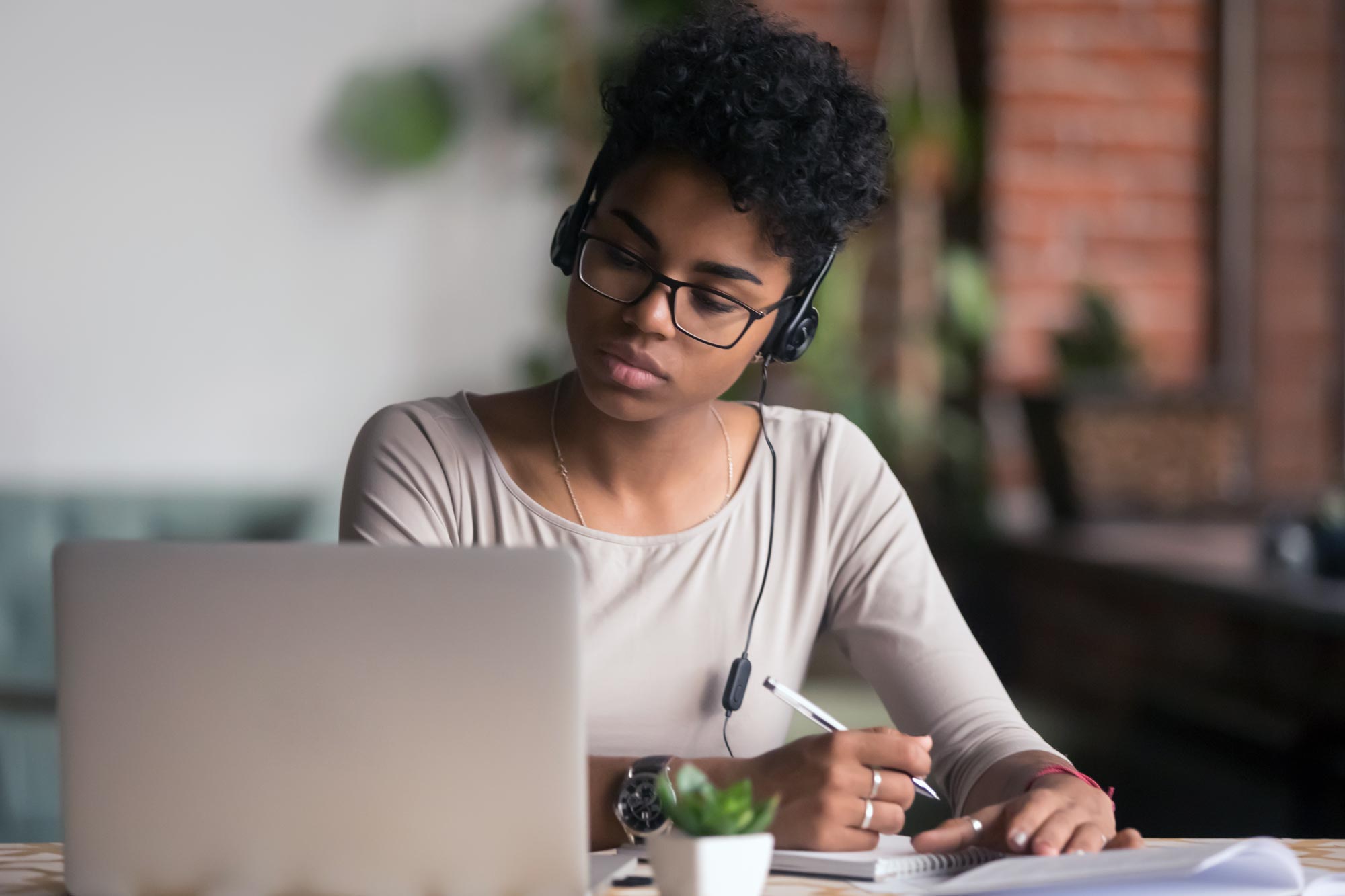Find the latest information on the University’s response to the coronavirus here.
Beginning Thursday, students and faculty members at the University of Virginia will settle into a new routine of online coursework, likely to continue through at least April 5 as UVA joins institutions nationwide making efforts to contain the spread of the novel coronavirus.
UVA faculty and staff are working hard to make this transition as smooth as possible. Numerous resources, outlined below, are available to help students, from technology checklists and guides to advice about building a routine and connecting with professors and University resources available virtually.
Here are six things students can do to get ready.
1. Prepare to connect to online classes.
UVA Information Technology Services has created a Student Technology Checklist for Online Classes. It includes tips for checking Internet connectivity, configuring devices for two-step login, and using Zoom, UVACollab and other online resources.
Student Financial Services has established a process for students who need financial assistance to obtain a computer or internet access. More information about this Technology Support Fund, and how to apply for assistance, is available here.
Faculty resources for moving online are available on the Teaching Continuity site.
2. Create a UVA Zoom account.
UVA has licensed Zoom Pro, a videoconferencing service, for students, faculty and staff. This allows users to interact remotely with a video connection, and can be used for classes, advising sessions and other meetings.
Instructions for creating your UVA Zoom account, and downloading Zoom to your computer, are available here. More Zoom tips are included in the Student Technology Checklist for Online Classes.
3. Start building a routine.
Katie Densberger, director of the Georges Student Center for Total Advising, said one of the most important things students can do is build structure for themselves as they transition to online classes.
Many classes, Densberger said, will become asynchronous – or available anytime – in order to accommodate students in different time zones. That change, along with other factors like other siblings home from school or parents and guardians working from home, can add a lot of uncertainty to previously set schedules.
“Typically, life on Grounds provides some of that structure, as students go to classes at particular times or have meals with friends,” Densberger said. “Students need to think about how they can build structure for themselves, not just establishing a schedule, but also establishing a space where they can work, and talking with their families or roommates about times when they need to be focused on coursework.”
Densberger and her colleagues have put together a guide for students with tips for planning a schedule, preparing a study space and connecting to UVA resources. They have also developed a guide to digital communication for remote learners.
4. Minimize distraction and stay flexible as faculty and students adapt.
Roger Martin, a professor in the McIntire School of Commerce who already teaches two large accounting courses online, said that, in addition to a structured routine, it is important to minimize distraction where possible, even in this tumultuous time.
“I always advise my students to put their phone away, and to give the coursework their undivided attention, to the extent that is possible,” Martin said.
He suggests using one study space consistently, and troubleshooting internet connections and other technology issues before courses begin.
“In online courses, technology can always get in your way,” he said. “Try to test your technology, identify problems and work toward solutions as early as you can.”
Most important, Martin said, is that both faculty and students remain flexible and understanding.
“We should try to remain as flexible as we can, as everything is changing for all of us,” Martin said, noting that his own son has returned home from college. “It has been a disappointment and a shock, but hopefully we can begin to think about what our days will look like for now, find routines and support each other.”
5. Remember that on-Grounds resources are still available virtually.
Resources including UVA Libraries; UVA Writing Center; the Career Center; the Student Disability Access Center; Counseling and Psychological Services, or CAPS; and more are open and operating and remain available to students through email, phone or virtual meetings.
The UVA Career Center, for example, is scheduling virtual or phone appointments, both same-day or for future dates. The Writing Center is offering real-time online consultations, as well as e-tutoring sessions allowing students to submit questions and drafts for feedback. CAPS is conducting appointments remotely and remains available to all students. Students needing help with their mental health can call 434-243-5150 to speak with a counselor.
Departments across UVA are making similar adjustments to accommodate students’ needs online. Check websites, call or email faculty members and staff if you have questions about accessing specific resources.
6. Know that the UVA Help Desk is available 24/7 for technology questions.
The UVA Help Desk will be available 24/7 for technology-related questions from students, faculty and staff. Priority phone support will be given for faculty or students who are in an online class or attempting to connect to one that is starting soon. If you are in an online class or trying to join one, please use 434-924-HELP.
The UVA Help Desk can be contacted in a variety of ways, including:
- By phone, at 434-924-4357 or toll-free at 866-469-4866.
- Via live chat here.
- By email at 4help@virginia.edu.
- Via My Help Center, where you can create a case for assistance.
- More: https://in.virginia.edu/helpdesk.
Media Contact
Article Information
March 17, 2020
/content/6-things-uva-students-can-do-prepare-online-classes

